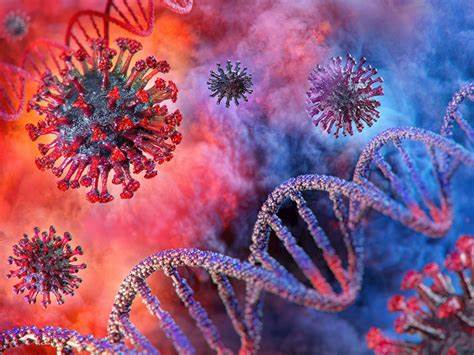WHO team rebuts COVID-19 lab theory
Jul 09, 2021WHO team rebuts COVID-19 lab theory
By Target Language Translation Services | Updated: 2021-7-9 17:30

The team of experts organized by the WHO investigate the origin of the COVID-19 virus, have rebutted claims that COVID-19 virus leaked from a Chinese laboratory, emphasizing that their research was cohesive and comprehensive.
"To this day, no scientific evidence has been found to back the theory that the virus was made by humans in a lab. Reckless propagation of the theory that the virus originated in a lab should be discarded," said Wu Zhiqiang, a researcher at the Institute of Pathogen Biology under the Chinese Academy of Medical Sciences and Peking Union Medical College.
Wu was a member of an international team, which visited Wuhan in Hubei province from Jan 14 to Feb 10 to search the origin of SARS-CoV-2. The team was convened by the World Health Organization and consisted of 17 Chinese and 17 foreign experts with the help of medical translation when necessary. "Respecting scientific facts was the bedrock for the launch of the mission. During the mission, Chinese and foreign experts came together as a whole and conducted research with the prerequisite of absolute openness and transparency." Wu said.
According to a report released on March 30, the joint team made a conclusion that the virus most likely spread from bats to humans via an intermediary animal. The likelihood that it was leaked from a lab in Wuhan is "extremely unlikely", the report said. It was through clear and unbiased methodology and reasoning that the team arrived at these conclusions, team members said.
Wu said: "The expert team began by analyzing available data in the three fields of epidemiology, molecular epidemiology and animal and environmental studies. Based on the findings in these fields, and suggestions derived from them, the team then proposed four possible origins."
The team also investigated direct transmission of the virus from an animal to a human and transmission through cold-chain products as possible origins of the virus.
Meanwhile, during investigation, both sides complied with scientific principles and openness, said Liang Wannian, a public health professor at Tsinghua University and leader of the Chinese experts on the team. Neither side had predetermined positions when the investigation started.
In assessing the theory that the virus originated in a laboratory, the report dispelled the speculation with evidence-based investigations.
The presence of the human ACE2 receptor and a furin-cleavage site in the virus were initially interpreted in one hypothesis as evidence of bioengineering because they enable the virus to enter human cells. But the report pointed out that both of them "have been found in (natural) animal viruses as well".
The report added that before December 2019, when the first domestic case was detected in Wuhan, the team had found no record of viruses closely related to SARS-CoV-2 in any laboratory, no genomes similar enough to that of the virus, and no evidence of human-to-human transmission. "Therefore, the chance of accidental culturing of SARS-CoV-2 in the laboratory is extremely low," it said.
In addition, biosafety measures were all adequate at the three institutes involved in researching coronaviruses in Wuhan. According to the report, no staff members were infected with the virus based on their medical records and serology screening results.
Peter Ben Embarek, leader of the foreign team of experts, said earlier this year that "it was very unlikely that anything could escape from such a place", referring to normative management procedures at the Chinese Academy of Sciences' Wuhan Institute of Virology, which has been falsely emphasized in the lab-leak claims.
Dominic Dwyer, an Australian virus expert and a member of the WHO team, said they were able to discuss many issues with laboratory workers in Wuhan, including biosecurity, protocols for handling materials, health monitoring, specific work areas and blood-testing of staff members.
"With that information, we were satisfied that there was no obvious evidence of a problem and that people had done the appropriate look back to see how the laboratory had been functioning during that time," he said after the report was released in March.
Since late May, some Western media have been highlighting a US intelligence report that claims three workers at the Wuhan Institute of Virology fell ill with COVID-19 symptoms in the fall of 2019.
However, Danielle Anderson, an Australian virus expert who worked at the institute until November 2019 said safety protocols at the facility were extensive and rigorous. No one she knew at the institute fell sick toward the end of 2019.
"If people were sick, I assume that I would have been sick-and I wasn't," she told Bloomberg. "I was tested for coronavirus in Singapore before I was vaccinated, and had never had it."
Public health experts worry that the unfounded speculation will deepen division in the scientific community and hamper ongoing efforts to end the pandemic.
"This whole process (origin tracing) is being poisoned by politics," said Michael Ryan, executive director of the WHO's Health Emergencies Programme.
"If you expect scientists to do their work, collaborate … seek in a non-blame environment to find the origin of the virus … we would ask that this be done in a depoliticized environment where science and health is the objective and not blame and politics," he said.
Liang, head of the Chinese experts during the WHO mission, said intense debates were not uncommon between team members as they worked tirelessly for the same goal of collecting evidence and facts.
"We are proud because our joint efforts have yielded the report, a valuable asset for epidemic control at the moment and for future studies. We are confident because, as scientists, we have all come to conclusions and consensuses that are science-based and evidence-based."
This article is reprinted from China Daily.
If there is a copyright, please inform us in time, we will delete it right the first time.